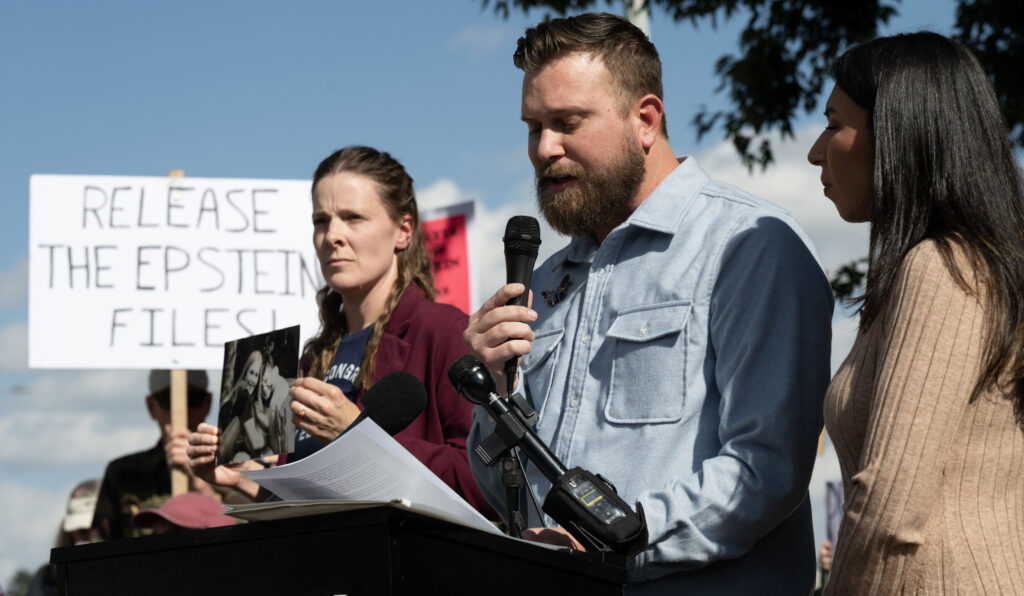Business group files ballot measure to rollback property valuations, Dems plan assessment rate cut | WHAT YOU NEED TO KNOW

Today is Nov. 17, 2023, and here’s what you need to know:
A business group is pushing a ballot measure to roll back home and business property valuations to 2020 levels, announcing its aim on the eve of a special session in which Gov. Jared Polis is asking lawmakers to figure out a way to provide Coloradans relief from soaring property taxes.
Colorado Concern, a politically active alliance of top business executives, said its proposal, which it is filing on Thursday, would cap the growth of property value to avoid “runaway property tax bills.” The values would only reset upon the sale or major improvements. The group said that would establish a “true market rate” for tax calculation purposes.
“Homeowners and businesses should not be penalized with a massive tax hike as the result of a hot economic environment that sent prices soaring,” said Mike Kopp, president and CEO of Colorado Concern. “It is imperative to protect taxpayers from the kinds of painful price shocks they now face, and will face again in the future if the system is not changed.”
He added: “This problem erodes the budgets of Colorado families and small businesses. Our measure will roll back property tax valuations to their 2020 level which will provide dramatic and direct relief, while permitting for modest annual growth that would allow local governments to provide necessary services.”
State House and Senate Democratic leaders on Thursday revealed their proposed solution to soaring property taxes in Colorado: Increase the value exemption for residential properties by thousands of dollars and decrease the assessment rate.
That would result in homeowners paying less in property taxes, though how much exactly would depend on the value of the property.
The proposal notably leaves out any property tax relief for commercial, hotel, lodging, agriculture or other non-residential properties.
Colorado lawmakers will tackle the proposal during a special session that begins at 9 a.m. Friday.
And despite the request from Gov. Jared Polis for bipartisan solutions, some of the Democratic leaders sent this message to Republicans: Their bills aren’t serious.
Although Colorado’s top cop is tasked with safe guarding the state’s data security laws, Attorney General Phil Weiser ostensibly does not know how frequently cyber-attacks are reported to his office.
After JeffCo Public Schools reported a Halloween cyber threat, The Denver Gazette inquired with the AG’s office about the frequency of such attacks.
Lawrence Pacheco, an Attorney General’s Office spokesman, did not know and required The Denver Gazette to submit a Colorado Open Records Act, or CORA, request to learn how many threats are reported annually.
That CORA request is still pending.
The Colorado Supreme Court considered this week what constitutional safeguards are necessary when school officials place students on “safety plans” that call for routine searches, even when there is no reasonable suspicion of an offense.
The case may be the first in the country scrutinizing student safety plans, and balancing the Fourth Amendment’s prohibition on unreasonable searches with the reduced expectations of privacy the U.S. Supreme Court has said schoolchildren have.
Although the parties and outside organizations argued to Colorado’s justices about the need to ensure school safety in an era of frequent mass shootings, the only major area of disagreement during oral arguments on Wednesday revolved around a narrow question: Did Denver Public Schools put a student on notice that he was subject to searches under his safety plan?
“Everybody agrees notice is required,” said public defender Mark Evans. “The whole reason we send kids to school is to learn to be good citizens. And if we want the citizenry that respects and defends the constitutional rights of others, we have to respect and defend the constitutional rights of our schoolchildren.”
When a criminal defendant asks for postconviction relief, for reasons like new evidence or ineffective assistance from counsel, Colorado’s procedural rules require judges to forward any petition that seems viable to an appointed defense lawyer to investigate or add claims, then to decide whether the defendant deserves relief.
But what happens when an appointed attorney chooses to focus on only some of the defendant’s claims? Does that mean judges can ignore the defendant’s other allegations?
Last year, the state’s Court of Appeals said no, judges have to address the items a defendant raises on his own unless he provides “informed consent” to ditch some of the claims.
Members of the Colorado Supreme Court on Wednesday analyzed that new interpretation of the rules, and the consequences of requiring informed consent. One the one hand, the court recognized a defendant’s consent could guard against any inclination to sweep allegations aside and uphold convictions, simply because certain claims have not attracted a lawyer’s focus.














